The Strategic Imperative of B2B E-commerce in Israel: Personalization, Digital Transformation, and Growth Opportunities
34 min read
II. The Evolving Israeli B2B E-commerce Market
A. Market Size, Growth Projections, and Economic Drivers
The e-commerce industry in Israel is experiencing robust and sustained growth, indicative of a maturing digital market. Projections indicate a substantial increase in revenue, from an estimated $7.55 billion in 2023 to $11.83 billion by 2027.1 This upward trajectory highlights a significant expansion of digital commerce across the nation. The underlying driver for this growth is the high comfort level and widespread adoption of digital transactions among the Israeli population, with over 48% of respondents reporting weekly online purchases in a 2022 survey.1 This deep penetration of digital habits within the consumer sector naturally extends to B2B expectations, where business buyers increasingly seek similar seamless online experiences.
Israel's reputation as a tech-driven "Startup Nation" provides a strong foundational infrastructure for further e-commerce expansion. The country boasts a growing number of companies specializing in e-commerce activity and infrastructure, encompassing everything from secure payment gateways to sophisticated logistics solutions.1 This robust ecosystem facilitates frictionless online transactions, which is particularly crucial for B2B environments characterized by high transaction volumes and complex procurement processes. The confluence of these factors – a digitally comfortable populace, significant revenue growth, and advanced technological infrastructure – positions B2B e-commerce as a fundamental sales channel, necessitating substantial investment from businesses to maintain competitiveness and capture market share. For potential investors, these figures suggest a market ripe for further capital injection, promising strong returns as digital transformation accelerates across various industries.
B. Key Industry Segments and Digital Adoption Trends
The applicability of e-commerce in Israel spans a diverse range of industry segments, including electronics, tourism, food and beverages, and fashion.1 This broad adoption demonstrates the versatility and necessity of digital channels across the economy. Notably, the online expenditure on fashion in Israel was substantial, reaching $1.82 billion in 2021, with forecasts predicting a rise to over $2.75 billion by 2027.1 This strong performance in a traditionally less tech-native sector underscores a broader digital shift. It indicates that digital transformation is not confined to high-tech or digital-first industries but is a pervasive imperative across the Israeli economy.
Many physical stores are now embracing a hybrid approach, offering comprehensive e-commerce services for a wide array of products, including apparel, shoes, and accessories.1 This trend of integrating online and offline channels further reinforces the notion that B2B e-commerce solutions must be highly adaptable and scalable. They need to cater to the unique needs and complexities of various industries, from manufacturing and distribution to fashion and food supply chains, fostering a broader digital imperative that transcends traditional sector boundaries. The success observed in these diverse segments suggests that businesses across all sectors must consider e-commerce as a core component of their operational and sales strategies.
C. Payment Landscape and E-commerce Infrastructure
The payment landscape in Israel is highly conducive to seamless online transactions, a critical factor for the efficiency of B2B e-commerce. Credit cards are the predominant payment method, accounting for 74% of online purchase transactions in 2022.1 This high reliance on credit cards is supported by widespread ownership, with 79.1% of Israelis aged 15 and older possessing a credit card as of January 2023.1 Such high penetration ensures a low-friction payment environment, which is essential for B2B transactions that often involve large volumes and frequent reorders.
Simultaneously, Israel's digital marketing ecosystem is highly developed and rapidly expanding. The social media advertising industry is thriving, with spending accumulating $358.7 million in 2022, and forecasts projecting a drastic rise to nearly $800 million within the next five years.1 Influencer advertising is also experiencing significant growth, projected to reach over $97 million by 2027.1 The confluence of these factors – a frictionless transaction environment and sophisticated digital marketing channels – creates a fertile ground for advanced personalization and targeted marketing campaigns within the B2B e-commerce space. This allows Israeli businesses to not only facilitate online sales efficiently but also effectively reach and engage B2B buyers through highly targeted digital strategies.
Table 1: Israeli E-commerce Market Growth Projections (2023-2027)
III. Digital Transformation in Israeli B2B Industries
A. The Mandate for Digital Transformation Across Sectors
The transition to e-commerce platforms for manufacturers and distributors in Israel is not merely about establishing additional sales channels; it necessitates a fundamental shift in their overall business approach.2 This distinction underscores a strategic, rather than purely tactical, imperative for companies. To remain competitive and foster growth, businesses are compelled to build smart sales channels and adopt innovative technologies. These advancements are aimed at shortening sales cycles, creating highly personalized customer experiences, improving operational efficiency, and optimizing supply chain management.2
The urgency and strategic focus on digital transformation are further highlighted by initiatives such as a recent webinar specifically designed for leaders of large B2B companies, including CEOs, CMOs, CDOs, SCMs, and COOs, on "How to turn sales channels into a growth engine with e-commerce tools in 2025".2 This focus on executive-level engagement signals that the underlying trend in Israeli B2B is a move towards holistic digital transformation, where companies must re-evaluate their entire operating model, customer relationships, and supply chain management. The implication is that simply implementing an e-commerce platform without a broader strategic overhaul will yield suboptimal results, compelling leadership to consider deep, systemic changes to their business. This strategic re-evaluation is crucial for unlocking the full potential of digital commerce.
B. Challenges and Success Factors in Digital Adoption
Despite the clear mandate for digital transformation, B2B organizations in Israel face inherent complexities that can impede adoption. Managing intricate pricing structures, extensive product catalogs, and multifaceted sales journeys presents significant challenges.3 Beyond technical hurdles, a substantial portion of B2B companies report internal resistance (49%) and struggles with cross-functional collaboration (46%) as key obstacles to digital transformation.4 This highlights that the primary hurdles are often organizational and cultural, rather than purely technological. Successful digital adoption, therefore, requires robust change management strategies, strong leadership buy-in, and a concerted effort to break down internal silos to foster a collaborative and digitally-oriented culture, in addition to selecting the right technologies.
A critical success factor in this transformation is the ability to capture data accurately, efficiently, and in real-time. This real-time data is essential for informing technology choices, guiding production changes, and enabling agile decision-making.5 Furthermore, offering self-service options has proven crucial for saving time, streamlining production processes, and mitigating supply chain disruptions, as demonstrated by successful digital transformations within the manufacturing sector.5 These elements collectively contribute to a more efficient and customer-centric digital ecosystem.
C. The Transformative Role of AI in B2B Business Models
Artificial intelligence (AI) is emerging as a critical enabler for enhancing customer experience, optimizing internal processes, and ultimately increasing profitability within B2B e-commerce.2 Israel is positioned at the forefront of this AI revolution, largely due to significant investments by global tech giants. Salesforce, for instance, operates a substantial R&D center in Israel, where 800 out of its 1,000 employees are dedicated to managing security, privacy, and governance features across Salesforce AI tools.6 This center is pivotal in the development of "Agentforce," a new offering that helps businesses build and customize autonomous AI agents, moving beyond traditional chatbots to more sophisticated, proactive AI systems.6
The nation's strong talent pool further fuels this innovation; Israel boasts one of the highest concentrations of AI talent globally, ranking 6th overall and 1st among women.6 This concentration of expertise is not just about Israeli companies
using AI; it positions Israel as a leader in its development and application, particularly within the B2B context. This means Israeli B2B businesses have a unique competitive advantage due to direct access to cutting-edge AI research and talent, allowing them to innovate faster and implement more sophisticated AI-driven solutions than many global counterparts. AI-powered personalization is already redefining B2B marketing, enabling dynamic content adjustments based on visitor behavior and hyper-targeted marketing through advanced segmentation capabilities.7 Moreover, generative AI is streamlining operational tasks, automating the rewriting of technical descriptions into customer-friendly copy, cleaning messy supplier data, and instantly localizing product information, dramatically accelerating time to market and enhancing data quality.8 The integration of AI is thus not merely an enhancement but a fundamental shift in how B2B operations are conceived and executed.
IV. Personalization: A Core Driver for B2B E-commerce Success
A. Defining B2B Personalization and its Nuances vs. B2C
B2B e-commerce personalization involves the strategic tailoring of the online buying experience to meet the individual needs and preferences of businesses.9 This approach fundamentally differs from business-to-consumer (B2C) personalization, which often emphasizes emotional appeal and impulse purchases. In contrast, B2B personalization must prioritize efficiency functions that align with complex organizational processes and rational decision-making.9 This distinction is critical because B2B transactions typically involve multiple stakeholders, such as procurement managers, financial officers, and department heads, each with unique priorities.13 Personalization in this context aims to address rational purchase drivers like cost-effectiveness, operational efficiency, and long-term value, supporting research-heavy and often longer decision cycles.13
The nature of personalization itself also varies. True personalization is system-driven, leveraging data and advanced algorithms to automatically tailor experiences based on behavioral and contextual insights. Conversely, customization is typically manually configured by users, allowing clients to adjust interfaces or product specifications to their explicit preferences.10 The consistent emphasis on these distinctions across various analyses highlights a fundamental difference in the underlying purpose of personalization in B2B. It is not about emotional connection but about streamlining complex, multi-layered business processes, making it a functional imperative for effective B2B relationships. This means B2B personalization strategies must be designed to address the specific pain points of business buyers, such as navigating large catalogs, managing complex pricing, and facilitating multi-user approvals.
B. Meeting Evolving Buyer Expectations for Seamless Experiences
A new generation of digitally-native B2B buyers is increasingly bringing their B2C expectations into the professional purchasing sphere. These buyers anticipate online journeys that mirror their personal consumer experiences, characterized by user-friendly websites, flexible payment options, and speedy delivery.15 A Forrester-Adobe study reinforces this trend, revealing that 72% of B2B customers expect fully personalized content when interacting with products and services.19 This high expectation level transforms personalization from a mere feature into a competitive necessity.
Crucially, the market has demonstrated that businesses failing to meet these evolving expectations risk significant customer churn. A compelling 75% of B2B buyers would switch to suppliers that offer better online buying experiences.19 This willingness to switch underscores the competitive pressure to personalize. It indicates that personalization has evolved from a "nice-to-have" to a "must-have" for both customer acquisition and, more critically, retention. Businesses that do not provide tailored, B2C-like experiences risk losing substantial market share, making personalization a direct driver of competitive advantage and customer loyalty in the modern B2B landscape.
C. Quantifying the Impact: Benefits on Engagement, Conversions, and Loyalty
Businesses that effectively serve personalized content appear more relevant to potential buyers, which directly leads to increased engagement and higher conversion rates.19 Furthermore, personalization enhances the effectiveness of cross-selling and upselling initiatives by aligning product suggestions with specific customer preferences and past behaviors.19 More advanced applications, such as AI-driven search and product recommendations, have been shown to lead to a 30% increase in conversion rates and a 25% higher average order value.4 Companies that implement comprehensive, advanced personalization strategies in B2B commerce report an average revenue uplift of 15%.4 These consistent and substantial quantitative metrics are not just general benefits; they are direct indicators of financial impact. This means that personalization is a powerful, measurable lever for improving profitability and operational efficiency. The underlying message is clear: investment in personalization translates directly into tangible business growth and a stronger bottom line, making it a high-priority strategic initiative.
Table 2: Key Benefits of B2B Personalization with Supporting Metrics
D. Data Foundations for Effective Personalization: Leveraging Contextual, Demographic, and Firmographic Data
The bedrock of effective B2B personalization is the collection and intelligent utilization of accurate and relevant customer data. This data typically falls into three categories: contextual data, demographic data, and firmographic or behavioral data.11 Contextual data encompasses the user's immediate situation, including device type, geographical location, browsing history, and referral sources. Demographic data focuses on stable user attributes such as job designation, company size, industry, region, age, and gender. Firmographic or behavioral data delves deeper into the user's company and their past interactions with the brand, including previous purchases, inquiries, time spent on the website, and responses to marketing communications.11
To create a comprehensive and reliable data source, it is essential to integrate information from various platforms, such as Customer Relationship Management (CRM) systems, marketing automation platforms, and website analytics tools.11 This integration is crucial for overcoming data silos and building a unified customer profile. Furthermore, real-time data processing is paramount to ensure that pricing, inventory, and product details are consistently accurate and up-to-date for personalized experiences.4 This dynamic capability allows businesses to adapt their offerings on the fly. Alongside data utilization, user privacy and strict compliance with regulations like GDPR and CCPA are non-negotiable.11 The emphasis on integrating data from disparate sources and leveraging various data types highlights a critical underlying challenge: data silos. This implies that the true enabler of effective B2B personalization is not just data collection, but a robust, unified data foundation. Companies must invest in data governance and platforms that can consolidate and harmonize information from across the enterprise to create a comprehensive customer view, without which personalization efforts will be limited and inaccurate.
E. Strategic Approaches to Personalization: From Dynamic Pricing to AI-Powered Recommendations
B2B personalization encompasses a wide array of strategic approaches, each tailored to enhance the buyer's journey and streamline complex transactions. These strategies move beyond basic segmentation to deliver highly relevant and efficient experiences:
Personalized Dashboards: Upon logging in, B2B buyers can be presented with dashboards displaying their specific order history, pending invoices, and the status of live shipments, often adapted based on their role within the organization.21 For instance, a warehouse manager might see inventory levels and shipment ETAs, while a finance manager sees credit limits and invoices.
Adapted Landing Pages and Content: Websites can dynamically adjust content, banners, and offers based on the user's role, industry, or past interactions.10 This means a CFO might see different dashboards and strategic content compared to an IT manager.
Customer-Specific Pricing and Discounts: B2B platforms can offer tailored pricing based on pre-negotiated contracts, purchasing history, or bulk order volumes. This ensures that each customer sees their agreed-upon rates.
Personalized Product Recommendations: Leveraging browsing behavior, purchase history, and insights from similar buyer profiles, systems can suggest complementary products or higher-value alternatives. This can include product bundles or accessories relevant to a recent purchase.
Personalized Catalogs: Product selections and specifications can be curated based on a customer's access permissions, business type, or specific licensing agreements. This ensures buyers only see relevant products, simplifying navigation.
AI-Powered Search and Chatbots: Artificial intelligence enhances search capabilities by providing ultra-relevant results based on individual preferences and past behavior.10 AI-driven chatbots can guide customers to the right products, adjust responses dynamically, and even appear as video-based synthetics to provide more human-like assistance.26
Saved Lists and Quick Reorders: To simplify repeat purchases, platforms allow customers to save shopping lists or quickly reorder past purchases with a single click.
Targeted Content and Promotions: Basic segmentation can be used to display relevant banners, messages, and email campaigns based on a visitor's industry, role, or detected intent signals.26
The extensive list of personalization tactics detailed across various sources signifies a move towards highly granular and dynamic B2B relationships. This implies that successful B2B e-commerce platforms must be architected for extreme flexibility and configurability to manage complex buyer roles, negotiated terms, and evolving needs. The underlying trend is the digital replication and enhancement of traditional, high-touch B2B sales relationships, but at scale, driven by sophisticated data analytics and AI.
Table 3: B2B Personalization Strategies and Examples
F. Navigating Personalization Pitfalls and Ensuring Ethical Implementation
While the benefits of B2B personalization are substantial, its implementation is not without challenges and potential pitfalls. Businesses must navigate these complexities to ensure effective and ethical deployment.
One primary challenge lies in data accuracy and completeness. Inaccurate or incomplete data inevitably leads to poor personalization experiences, undermining the entire effort.11 B2B user data is often less readily available or more fragmented compared to B2C data, making the task of building a clean, reliable data source more complex.11 This highlights that effective personalization is not just about having data, but having
good data.
Technical challenges also abound, particularly in integrating personalization tools with existing Content Management Systems (CMS) and marketing automation platforms, which often requires specialized developer expertise.11 Furthermore, as traffic and data volumes grow, the personalization infrastructure must scale efficiently to maintain a seamless user experience.11
A common pitfall is over-automation. Relying extensively on automation without adequate human supervision can lead to generic, irrelevant messages that erode customer trust and engagement rather than enhancing it.27 This emphasizes the need for a balanced approach where AI augments, rather than replaces, human interaction.
Misaligned messaging represents another significant risk. Failing to tailor content to the specific roles and priorities within a multi-stakeholder buying committee (e.g., focusing only on IT managers while ignoring procurement or finance decision-makers) can result in slower deal closures and wasted resources.27
There is also the risk of over-personalizing to the point of intrusion. Utilizing too much personal or behavioral data in messaging can make prospects feel surveilled, potentially damaging trust, especially when data usage appears invasive.27 This underscores the importance of respecting privacy and maintaining transparency in data practices.
Ignoring emerging technologies, particularly AI-driven personalization, can lead to missed opportunities and a loss of competitive edge.27 Businesses that cling to outdated methods will find themselves falling behind competitors who leverage these advancements.
Finally, a focus solely on short-term gains can be detrimental. Exploiting prospects rather than cultivating long-term relationships through personalization can lead to increased customer turnover and damaged brand loyalty.27
The detailed enumeration of these personalization pitfalls underscores that successful personalization is not a purely technical endeavor. It implies that a nuanced, human-centric approach is required, balancing the power of automation and AI with ethical considerations, a deep understanding of buyer psychology, and a commitment to long-term relationship building. The broader implication is that effective digital transformation in B2B requires a strategic blend of technological prowess and empathetic business practices to build and maintain trust.
V. Key Players and Innovation in the Israeli B2B E-commerce Ecosystem
A. Salesforce Israel: Driving AI and CRM Innovation for B2B
Salesforce maintains a substantial and strategically vital presence in Israel, serving as a key hub for innovation in AI and Customer Relationship Management (CRM) for the B2B sector. Its large R&D center in Israel employs 800 out of its 1,000 employees in the country, with a dedicated focus on managing security, privacy, and governance features across Salesforce AI tools.6 This center is instrumental in the development of "Agentforce," a cutting-edge offering that allows businesses to build and customize autonomous AI agents designed to support both employees and customers, moving significantly beyond the capabilities of traditional chatbots.6
A pivotal moment in Salesforce's Israeli strategy was its 2018 acquisition of Datorama, an Israeli cloud-based, AI-powered marketing intelligence and analytics platform, for a reported sum exceeding $800 million.29 This acquisition profoundly enhanced Salesforce's Marketing Cloud capabilities by expanding its data integration and intelligence functionalities, enabling marketers to gain unified views of data and optimize engagement at scale.29 Salesforce's broader B2B commerce offerings in Israel encompass a comprehensive suite of solutions, including B2B Commerce Cloud, Sales Cloud, Service Cloud, Marketing Cloud, and Analytics, all meticulously designed to leverage AI and data for superior customer success.30 Furthermore, Deloitte's strategic alliance with Salesforce in Israel underscores a concerted effort to empower clients across diverse sectors—including consumer, financial services, energy, resources, industrials, technology, media, and telecom—to harness automation, AI, and personalization across both B2B and B2C domains.40
The combination of Salesforce's substantial R&D investment in Israel focusing on AI, the strategic acquisition of a homegrown Israeli AI company like Datorama for over $800 million, and the strong partnership with Deloitte signifies more than just a local market presence. It indicates that Israel is not merely a consumer of B2B e-commerce technology but a critical, global innovation hub for AI and CRM solutions. The implication is that advancements in B2B personalization and digital transformation originating from Israel will likely have a ripple effect across the global market, positioning Israeli companies at the forefront of adopting these cutting-edge capabilities.
B. Leading Israeli B2B E-commerce Platforms and Success Stories
The Israeli B2B e-commerce ecosystem is characterized by a dynamic blend of homegrown innovation and the strategic adoption of leading global platforms. This dual approach enables businesses to leverage both specialized local solutions and proven international technologies to meet their complex needs.
Pepperi: Headquartered in Israel and founded in 2012, Pepperi offers a unified approach to B2B sales, seamlessly integrating B2B e-commerce, sales force automation, and retail execution. It serves a significant global client base, with over 1,000 customers in more than 70 countries. Pepperi is highly regarded for its flexibility, code-free configuration, and native mobile and browser-based solutions. Case studies highlight its effectiveness in boosting buyer adoption rates (exceeding 50%) and significantly increasing product discoverability, leading to 45% incremental orders from new lines.41
AGORAB2B: This company provides comprehensive solutions for B2B marketplaces and e-shops. Their case studies emphasize successful implementations including personalized product catalogs, individual user accounts, and dynamic pricing with customized terms for partners. Their platforms are designed to manage large volumes of data (e.g., over 10,000 products, 8 million prices) and integrate efficiently with ERP systems, ensuring robust performance and data synchronization.42
StoreNext: As the largest and most established B2B e-commerce company in Israel, StoreNext serves over 100 leading procurement bodies in Israel, connecting them with thousands of suppliers. Their platform enables full e-commerce trade relationship management, including tenders, quotes, orders and updates, deliveries, and payments. It handles immense volumes of information (over 2,000,000 messages daily) and facilitates full digitization of supplier invoices and integration with ERP systems, ensuring maximum stability, speed, and information reliability.18
Weblet: Weblet provides B2B solutions that enable business customers to place orders and open service calls 24/7 through a secure self-service portal. The system is personalized for each customer's price lists, service agreements, and special terms, displaying only relevant data. This saves on manpower and improves sales due to high customer availability.43
911 Fashion (:story): An Israeli multi-brand fashion and lifestyle platform that significantly expanded its digital presence with e-commerce operations in 2011. While its current focus is primarily B2C retail, its historical roots in wholesale footwear distribution 44 indicate an inherent understanding of B2B dynamics. Its digital transformation and successful growth in online retail highlight the broader trend of consumer-like digital experiences influencing all commerce sectors, including wholesale.
Tosaf: An Israeli industrial supplier known for its strong customization capabilities, particularly in colors and additives. They emphasize fast color matching, swift production times, and strict adherence to quality and regulatory standards.45 Although not an explicit e-commerce case study, Tosaf's focus on meeting "dynamic color needs" and providing "customization" reflects a deep B2B personalization mindset within the industrial supply sector, prioritizing tailored solutions for specific customer demands.
Digital Transformation in Israeli Industries: Broader studies indicate that digital transformation, often driven by AI, is actively occurring across various Israeli industries, including InsurTech, HealthTech, AgTech, and manufacturing.46 However, it is important to note that some AI-based B2B startups have faced challenges, particularly those related to integration with legacy systems and the suboptimal state of existing big data resources in established companies.46
This apparent contradiction reveals a critical "adoption gap." While advanced technology and the talent to develop it are abundant in Israel, many established B2B organizations struggle with the fundamental prerequisites for advanced personalization—namely, modernizing their core IT infrastructure and ensuring unified, high-quality data. This means that for a significant portion of Israeli companies, the path to achieving deep personalization is not just about acquiring new technology, but also about overcoming internal challenges related to legacy systems and fragmented data, which impact the speed and depth of personalization implementation.
C. Leading Global Platforms and B2B Success Stories
Shopify Plus: Shopify Plus is a leading e-commerce platform offering comprehensive B2B solutions that enable the personalization of the buying experience for each business customer. The platform allows for the creation of custom storefronts with tailored pricing, customer-specific product catalogs, flexible quantity rules, and adapted payment terms. It supports the management of multiple company profiles, various buying locations, and custom permission levels, simplifying complex B2B procurement processes.
Filtrous: A global laboratory supply company, transitioned to B2B on Shopify and experienced a 27% jump in organic conversion rate. Additionally, their customer service team saved approximately 10 hours of manual work per week, and their sales team saved an additional two hours.
Who Gives A Crap: An Australian toilet paper brand, achieved a 15% year-over-year conversion rate increase and a 20% increase in customer lifetime value after partnering with Shopify.
TileCloud: An Australian home and garden business, expanded its B2B customer base by 24% and saw significant increases in average order value and conversion rate after implementing Shopify's B2B features.
Snyder Performance Engineering: An automotive company, saved 25% of its time and increased B2B customer spend by 41% after replacing its manual order process with a self-service portal powered by Shopify.
Upscale Audio: A high-end audio equipment company, increased its online revenue from $3 million to over $20 million, with a 122% increase in average order value and a 300% increase in conversion rate after migrating to Shopify.
Salesforce Commerce Cloud (Global examples demonstrating the power of AI and Data): Salesforce offers B2B solutions that leverage AI and data across the entire customer lifecycle.30
SharkNinja: Accelerates service for its customers with instant answers from Agentforce (Salesforce's AI tool).31
1-800Accountant: Expected to resolve 70% of inquiries using Agentforce.31
Formula 1: Agentforce helps accelerate service response time by 80%.31
FedEx: Grows shipping revenue with a unified view of B2B data.31
Vonage: Reduced response time from 4 days to 4 minutes through automation.31
Virto Commerce (Global examples from another B2B platform):
HEINEKEN: Achieved 30% of its operating company revenue through a mobile-first B2B platform.
Royal Brass & Hose: A U.S. distributor, saw an 11% increase in sales after implementing a self-service B2B site.
De Klok Dranken: A Dutch beverage wholesaler, reached 80% platform adoption after upgrading to a self-service customer portal.
Adobe Commerce (Global examples demonstrating the impact of personalization):
Companies using Adobe Commerce reported a 41% conversion rate lift from personalization, with 80% of orders placed online. Additionally, they saw a 44% increase in site visits and a 40% increase in onsite revenue.
Additional Industry Examples (Global, relevant to the Israeli industrial sector):
MacDon (Agricultural Equipment): A leading agricultural equipment manufacturer, increased overall sales by 20%, e-commerce transactions by 50%, and doubled site visitor numbers after upgrading its portal.5
Mueller, Inc. (Steel Buildings & Roofing): A construction company, saw a 73% increase in monthly quote requests (and in some months, up to 163%), and a 250% increase in website traffic after implementing self-service tools.5
Airbus: Airbus's new services platform recorded 290,000 visits and 2,200,000 page views within 10 months, and its Service Desk now manages 30% fewer incidents thanks to the portal.5
GARVEE.com: An e-commerce B2B company, improved its supply chain capabilities, expanded market presence, enhanced cross-border logistics, implemented automated demand forecasting systems, reduced stockouts, and improved customer satisfaction.
VI. Optimizing the B2B Customer Journey through Unified Commerce
A. Mapping the B2B Customer Journey: Stages, Touchpoints, and Pain Points
Understanding and optimizing the B2B customer journey is paramount for digital commerce success. This journey typically encompasses several distinct stages: Awareness, Consideration, Decision, Purchase and Delivery, Support and Retention, Growth and Expansion, and ultimately, Advocacy.48 A key differentiation from the B2C customer journey is that the B2B journey extends significantly beyond the initial purchase, placing a strong emphasis on long-term retention and fostering customer advocacy.51
Mapping this journey allows businesses to gain profound insights into customer behavior, identify potential pain points, and strategically optimize interactions across a multitude of touchpoints. These touchpoints can range from initial online searches and website visits to email communications, phone interactions, and in-person
engagements.48 By meticulously detailing each stage and its associated interactions, companies can pinpoint where customers might lose interest, where the experience can be improved, and how to make every step as efficient and valuable as possible.48 The explicit inclusion of "Retention" and "Advocacy" as distinct stages highlights a fundamental difference in B2B strategic focus: long-term relationships over purely transactional gains. This implies that B2B e-commerce platforms and strategies must be designed to support ongoing engagement, post-purchase support, and loyalty programs, rather than just optimizing for initial conversion. The underlying trend is a shift towards a customer lifetime value (CLV) mindset, where digital tools are leveraged to nurture and expand existing business relationships.
Table 4: Stages of the B2B Customer Journey and Digital Touchpoints
B. The Rise of Self-Service and Intuitive Online Experiences
A significant shift in B2B buyer behavior is the growing preference for self-service and intuitive online experiences. Modern B2B buyers increasingly prefer to research products, compare options, and place orders independently, mirroring their B2C purchasing habits.15 Evidence suggests that over half of younger B2B buyers now rely on social media, peer reviews, and online tools before engaging directly with a salesperson.15 This trend necessitates that businesses offer comprehensive and intuitive self-service features, including detailed product pages, readily accessible how-to resources, real-time inventory visibility, and downloadable specification sheets.15
The power of self-service functionality is demonstrated by successful digital transformations in the manufacturing sector. For instance, MacDon, a leader in agricultural equipment, achieved a 20% increase in overall sales and a 50% increase in e-commerce transactions through its upgraded dealer portal, which offered extensive self-service capabilities.5 Similarly, Mueller, Inc., a supplier of steel buildings, saw a 73% increase in monthly quotes and a 250% increase in website traffic after implementing a self-service portal that allowed customers to complete the entire purchase process online.5 These examples underscore that empowering buyers with autonomous tools can drive significant business growth and efficiency.
While self-service is undeniably crucial for modern B2B operations, human support remains vital for complex orders, intricate problem-solving, and providing personalized guidance.15 The most successful organizations strike a strategic balance, automating processes where efficiency gains are maximized but ensuring human availability when complex issues arise or deep relationship building is required. This balance is critical for delivering the comprehensive experience that today's B2B buyers expect. The growing reliance of B2B buyers on self-service tools and online research, coupled with the proven success of companies in driving sales and efficiency through self-service portals, indicates a clear shift in buyer behavior towards greater autonomy. This implies that B2B e-commerce platforms must prioritize an intuitive, comprehensive self-service experience that mirrors B2C ease of use, while still providing seamless access to human support for complex inquiries. The underlying trend is the consumerization of B2B buying, where convenience and immediate access to information are paramount.
C. Benefits of Unified Commerce: Real-time Data, Operational Efficiency, and Enhanced Customer Experience
Unified commerce is emerging as a foundational architectural imperative for modern B2B operations, offering a comprehensive solution to the complexities of digital transformation. Its core benefit lies in ensuring consistency for customers by providing real-time data across all touchpoints—including inventory levels, order statuses, customer data, and pricing.19 This eliminates discrepancies and ensures that both customers and internal teams have access to the same accurate information, regardless of the channel through which they interact.
By centralizing data and processes into a single source of truth, unified commerce significantly simplifies operations, cutting down on redundancies, minimizing errors, and reducing the need for manual tasks.19 This centralization drives substantial operational efficiency, leading to smoother workflows and faster order throughput. The consolidation of all customer interactions and purchases into one integrated system also enables personalized engagement at scale, allowing businesses to track buyer behavior and preferences across diverse channels and tailor experiences accordingly.19
Moreover, a unified platform offers inherent scalability and future-proofing capabilities. Businesses can seamlessly add new sales channels, expand into new regions, or launch new products without the cumbersome process of reconfiguring multiple disparate systems.19 This agility is crucial for adapting to evolving market demands. Specific, tangible benefits derived from unified commerce include a reduced cost to serve (achieved by boosting self-service capabilities), increased revenue per customer (through smart recommendations and targeted offers), and improved customer retention (via seamless self-service account management and consistent experiences).53
The comprehensive array of benefits attributed to unified commerce—consistency, clarity, efficiency, scalability, enhanced customer experience, reduced costs, increased revenue, and improved retention—indicates that it is more than just a technological choice. It is becoming the foundational architectural imperative for modern B2B e-commerce. This implies that without a unified commerce strategy, businesses will struggle to deliver the seamless, personalized, and efficient experiences that today's B2B buyers demand, hindering their ability to scale and compete effectively in a digitally transformed market. The underlying theme is the critical role of integrated systems in unlocking the full potential of digital transformation and personalization.
VII. Strategic Recommendations and Future Outlook
A. Actionable Strategies for Israeli B2B Businesses
To thrive in the evolving Israeli B2B e-commerce landscape, businesses must adopt a strategic, multi-faceted approach that leverages technology and prioritizes customer experience.
Invest in a Unified Data Foundation: Prioritize the accuracy and integration of data across all enterprise systems, including CRM, ERP, and marketing automation. Establishing robust data governance is fundamental to power advanced personalization and AI initiatives, ensuring that all customer interactions are informed by a single, comprehensive source of truth.11
Embrace AI-Driven Personalization: Implement AI technologies for dynamic content delivery, personalized product recommendations, intelligent site search, and the deployment of autonomous AI agents. These applications can significantly enhance both the customer experience and internal operational efficiency, moving beyond generic interactions to highly tailored engagements.10
Develop Robust Self-Service Portals: Provide comprehensive and intuitive online tools that empower B2B buyers to manage orders, access account history, view customized pricing, and retrieve technical information independently. The goal is to replicate the ease-of-use and convenience found in leading B2C experiences, catering to the growing preference for autonomous buying journeys.15
Adopt a Hybrid Sales Approach: Strategically balance the efficiency gains from automation and self-service with the critical human element. For complex transactions, intricate problem-solving, and deep relationship building, human sales and support teams remain invaluable. This ensures that businesses can scale operations while maintaining the personalized touch that B2B relationships often require.15
Focus on Long-Term Customer Journey Optimization: Extend digital strategies beyond the initial purchase to encompass the full customer lifecycle, including retention, support, and advocacy. Leveraging data insights for continuous improvement across all stages will foster stronger, more enduring business relationships and maximize customer lifetime value.6
Prioritize Security and Trust in AI Implementation: As AI adoption grows, it is crucial to proactively address concerns around data privacy, ethical AI use, and the security implications of deploying agentic AI. Building and maintaining customer confidence in how their data is handled and how AI systems operate is paramount for long-term success.6
B. Emerging Trends and Future Growth Trajectories
The Israeli B2B e-commerce market is poised for continued evolution, shaped by several key emerging trends:
Continued Acceleration of Digital Transformation: The market will experience an ongoing and intensified shift towards digital-first strategies. This will be driven by the ever-evolving expectations of B2B buyers and relentless technological advancements, particularly in the realm of AI, making digital channels the primary mode of engagement.7
Increased Adoption of Agentic AI: Autonomous AI agents are set to play an increasingly significant role in B2B operations. These advanced AI systems will automate complex tasks, augment human workforces, and provide highly personalized, proactive interactions across sales, service, and even internal operations, redefining efficiency and customer engagement.6
Further Integration of B2B and B2C Experiences: The distinctions between business and consumer e-commerce experiences will continue to blur. B2B buyers will increasingly expect the same seamless, intuitive, and highly personalized online interactions they encounter in their personal lives, pushing B2B platforms to match B2C usability and sophistication.15
Emphasis on Sustainability and Ethical Business Practices: There is a growing trend where procurement teams are prioritizing Environmental, Social, and Governance (ESG) factors in their vendor selection processes. This will make demonstrable commitment to sustainability and ethical conduct a growing competitive differentiator in B2B marketing and sales, influencing purchasing decisions beyond traditional cost and quality.7
Growth in Specialized B2B E-commerce Platforms: The inherent complexities of B2B transactions, such as managing multi-vendor catalogs, negotiated pricing, and multi-level approval processes, will drive continued demand for highly tailored e-commerce solutions. This will foster further innovation and specialization among platform providers, offering more sophisticated tools to address unique industry needs.3
Israel's Continued Role as a Global AI and Tech Innovation Hub: Given its robust talent pool, vibrant startup ecosystem, and significant investments by global tech giants like Salesforce, Israel is set to remain a key driver of B2B e-commerce advancements worldwide. Its innovations will continue to influence future trends and best practices, solidifying its position at the forefront of digital transformation in the B2B sector.6
These trends collectively point towards a future where B2B e-commerce in Israel is not just about transactions, but about building intelligent, highly personalized, and resilient digital ecosystems that foster long-term relationships and drive sustainable growth.
References
2 Geektime. (2025, January 29).
Geektime B2B e-commerce Israel. Retrieved from https://www.geektime.co.il/b2b-ecommerce-webinar-225/
12 Ontap Group. (n.d.).
B2B eCommerce Personalization. Retrieved from https://www.ontapgroup.com/blog/b2b-ecommerce-personalization
14 SellersCommerce. (n.d.).
B2B eCommerce Challenges and Solutions. Retrieved from https://www.sellerscommerce.com/blog/b2b-ecommerce-challenges-and-solutions/
18 DemandGen Report. (n.d.).
The Next Generation of B2B Buyers Is Here — And They Expect a B2C Experience. Retrieved from https://www.demandgenreport.com/demanding-views/the-next-generation-of-b2b-buyers-is-here-and-they-expect-a-b2c-experience/49183/
18 StoreNext. (n.d.).
B2B E-commerce. Retrieved from https://www.storenext.co.il/b2b-ecommerce/
54 Manh. (n.d.).
Delighting B2B Buyers with Consumer-Like Experiences. Retrieved from https://www.manh.com/our-insights/resources/blog/delighting-b2b-buyers-with-consumer-like-experiences
43 Virto Commerce. (n.d.).
The Importance of Personalization for B2B E-commerce. Retrieved from https://virtocommerce.com/blog/importance-of-personalization-for-b2b-ecommerce
43 Weblet. (n.d.).
B2B E-commerce. Retrieved from https://www.weblet.co.il/b2b-ecommerce/
42 Optimizely. (n.d.).
10 Benefits of B2B Ecommerce. Retrieved from https://www.optimizely.com/insights/blog/10-benefits-of-b2b-ecommerce/
55 Adobe. (n.d.).
The Best B2B Commerce Personalization Tactics Backed by Data. Retrieved from https://business.adobe.com/blog/how-to/the-best-b2b-commerce-personalization-tactics-backed-by-data
44 Join Amply. (n.d.).
Powerful B2B Website Personalization Examples. Retrieved from https://www.joinamply.com/post/powerful-b2b-website-personalization-examples
33 Reveation Labs. (n.d.).
Streamlining B2B E-commerce Architecture for Personalization. Retrieved from https://medium.com/@reveation-labs/streamlining-b2b-ecommerce-architecture-for-personalization-1af9c5957dc9
33 Ranosys. (n.d.).
A Complete Guide to Salesforce B2B Commerce Data Model. Retrieved from https://www.ranosys.com/blog/insights/a-complete-guide-to-salesforce-b2b-commerce-data-model/
17 DHL. (n.d.).
B2B Personalization Strategies to Increase Sales. Retrieved from https://www.dhl.com/discover/en-ca/b2b-advice/b2b-e-commerce-resources/b2b-personalization-strategies-to-increase-sales
31 Salesforce. (n.d.).
Customer Success Stories. Retrieved from https://www.salesforce.com/customer-stories/
39 Salesforce. (n.d.).
Salesforce Blog — News and Tips About Agentic AI, Data and CRM. Retrieved from https://www.salesforce.com/blog/
1 Trade.gov. (n.d.).
Israel - E-commerce. Retrieved from https://www.trade.gov/country-commercial-guides/israel-ecommerce
19 DHL. (n.d.).
B2B Personalization Strategies to Increase Sales. Retrieved from https://www.dhl.com/discover/en-hu/b2b-advice/b2b-e-commerce-resources/b2b-personalization-strategies-to-increase-sales
47 ResearchGate. (n.d.).
Digital Transformation of Business Model: The Case of Israeli HealthTech. Retrieved from https://www.researchgate.net/publication/365871272_Digital_Transformation_of_Business_Model_The_Case_of_Israeli_HealthTech
26 Virto Commerce. (n.d.).
The Importance of Personalization for B2B E-commerce. Retrieved from https://virtocommerce.com/blog/importance-of-personalization-for-b2b-ecommerce
46 ResearchGate. (n.d.).
Digital Transformation of Business Models through AI in Israel's InsurTech Scene. Retrieved from https://www.researchgate.net/figure/Digital-Transformation-of-Business-Models-through-AI-in-Israels-InsurTech-Scene_fig1_356695612
11 Qualtrics. (n.d.).
Powerful B2B Website Personalization Examples. Retrieved from https://www.joinamply.com/post/powerful-b2b-website-personalization-examples
Shopify. (n.d.). Personalized Content: The Ultimate Guide for Ecommerce. Retrieved from https://www.shopify.com/enterprise/blog/content-personalization
7 Emboodo. (n.d.).
B2B Marketing Trends in Israel and Beyond. Retrieved from https://www.emboodo.com/blog/b2b-marketing-trends/
7 Emboodo. (n.d.).
B2B Marketing Trends in Israel and Beyond. Retrieved from https://www.emboodo.com/blog/b2b-marketing-trends/
30 Ranosys. (n.d.).
A Complete Guide to Salesforce B2B Commerce Data Model. Retrieved from https://www.ranosys.com/blog/insights/a-complete-guide-to-salesforce-b2b-commerce-data-model/
22 BigCommerce. (n.d.).
Ecommerce Personalization: The Ultimate Guide. Retrieved from https://www.bigcommerce.com/articles/ecommerce/personalization/
56 ISRA VISION. (n.d.).
Machine Vision Solutions. Retrieved from https://www.isravision.com/en-en
34 Salesforce. (n.d.).
Customer Experience Report. Retrieved from https://www.salesforce.com/resources/research-reports/customer-experience-report/
6 Calcalistech. (n.d.).
“The agent will see you now”: Inside Salesforce Israel's mission to build responsible AI. Retrieved from https://www.calcalistech.com/ctechnews/article/bkqiqd7yeg
45 Tosaf. (n.d.).
Tosaf Homepage. Retrieved from https://www.tosaf.com/
Euromonitor. (n.d.). Israel. Retrieved from https://www.euromonitor.com/store/explore-reports/middle-east/israel
5 Liferay. (n.d.).
3 Examples of Successful Digital Transformation in Manufacturing. Retrieved from https://www.liferay.com/blog/customer-experience/-3-examples-successful-digital-transformation-manufacturing
Calcalistech. (n.d.). Israeli B2C and Digital SMB unicorns are the new norm. Retrieved from https://www.calcalistech.com/ctech/articles/0,7340,L-3902059,00.html
32 Salesforce. (n.d.).
B2B Commerce Blog. Retrieved from https://www.salesforce.com/blog/category/b2b-commerce/
Appetiser. (n.d.). B2B E-commerce Trends. Retrieved from https://appetiser.com.au/blog/b2b-ecommerce-trends/
40 Deloitte. (n.d.).
Salesforce Alliance. Retrieved from https://www.deloitte.com/il/en/alliances/salesforce.html
Shopify. (n.d.). 10 B2B E-commerce Companies That Are Crushing It. Retrieved from https://www.shopify.com/in/enterprise/blog/b2b-ecommerce-companies
1 Trade.gov. (n.d.).
Israel - E-commerce. Retrieved from https://www.trade.gov/country-commercial-guides/israel-ecommerce
31 Salesforce. (n.d.).
Customer Success Stories. Retrieved from https://www.salesforce.com/customer-stories/
35 Salesforce. (n.d.).
State of Sales Report. Retrieved from https://www.salesforce.com/resources/research-reports/state-of-sales/
40 Deloitte. (n.d.).
Salesforce Alliance. Retrieved from https://www.deloitte.com/il/en/alliances/salesforce.html
21 Reveation Labs. (n.d.).
Streamlining B2B E-commerce Architecture for Personalization. Retrieved from https://medium.com/@reveation-labs/streamlining-b2b-ecommerce-architecture-for-personalization-1af9c5957dc9
8 Datafloq. (n.d.).
Generative AI and PIM: A New Era for B2B Product Data Management. Retrieved from https://datafloq.com/read/generative-ai-pim-b2b-product-data-management/
23 Adobe. (n.d.).
The Best B2B Commerce Personalization Tactics Backed by Data. Retrieved from https://business.adobe.com/blog/how-to/the-best-b2b-commerce-personalization-tactics-backed-by-data
4 Valtech. (n.d.).
How AI-Powered Search Personalization Unlocks B2B Growth. Retrieved from https://www.valtech.com/blog/how-ai-powered-search-personalization-unlock-b2b-growth/
Virto Commerce. (n.d.). Case Studies. Retrieved from https://virtocommerce.com/case-studies
24 MarTech. (n.d.).
How AI is Winning Digital Shoppers Through Personalization. Retrieved from https://martech.org/how-ai-is-winning-digital-shoppers-through-personalization/
Industrial Supply Magazine. (n.d.). Using Speed as a Multiplier. Retrieved from https://industrialsupplymagazine.com/file_open.php?id=29
PR Newswire. (n.d.). GARVEE.com Achieves Robust H1 2025 Growth, Bolsters Global E-commerce Leadership Through Strategic Acquisition. Retrieved from https://www.prnewswire.com/news-releases/garveecom-achieves-robust-h1-2025-growth-bolsters-global-e-commerce-leadership-through-strategic-acquisition-302508441.html
57 Amdocs. (n.d.).
What We Do. Retrieved from https://www.amdocs.com/
41 Pepperi. (n.d.).
B2B E-commerce Platform. Retrieved from https://www.pepperi.com/b2b-e-commerce/
28 Metheus. (n.d.).
Top Pitfalls in B2B Ideal Customer Profile Development. Retrieved from https://www.metheus.co/insights/top-pitfalls-in-b2b-ideal-customer-profile-development
Shopify. (n.d.). Case Studies. Retrieved from https://www.shopify.com/case-studies
3 SellersCommerce. (n.d.).
B2B eCommerce Challenges and Solutions. Retrieved from https://www.sellerscommerce.com/blog/b2b-ecommerce-challenges-and-solutions/
37 Salesforce. (n.d.).
Salesforce Signs Definitive Agreement to Acquire Own Company. Retrieved from https://www.salesforce.com/news/press-releases/2024/09/05/salesforce-signs-definitive-agreement-to-acquire-own-company/
58 Amdocs. (n.d.).
Globe Accelerates Digital Transformation with Amdocs' AI and Data Platform. Retrieved from https://www.amdocs.com/news-press/globe-accelerates-digital-transformation-amdocs-ai-and-data-platform
YouTube. (n.d.). Noa Eshed: Scaling B2B Tech Startups Through Trust. Retrieved from https://www.youtube.com/watch?v=qSCQc0k-QJA
48 Magneto IT Solutions. (n.d.).
Fundamentals of B2B Customer Journey. Retrieved from https://magnetoitsolutions.com/blog/fundamentals-of-b2b-customer-journey
YouTube. (n.d.). Noa Eshed: Scaling B2B Tech Startups Through Trust. Retrieved from https://www.youtube.com/watch?v=qSCQc0k-QJA
36 Salesforce. (n.d.).
State of the Connected Customer Report. Retrieved from https://www.salesforce.com/resources/research-reports/state-of-the-connected-customer/
38 Salesforce. (n.d.).
E-commerce Trends 2024. Retrieved from https://www.salesforce.com/news/stories/ecommerce-trends-2024/
Shopify. (n.d.). B2B E-commerce Solutions. Retrieved from https://www.shopify.com/plus/solutions/b2b-ecommerce
51 SPP. (n.d.).
B2B Customer Journey. Retrieved from https://spp.co/blog/b2b-customer-journey/
16 Manh. (n.d.).
Delighting B2B Buyers with Consumer-Like Experiences. Retrieved from https://www.manh.com/our-insights/resources/blog/delighting-b2b-buyers-with-consumer-like-experiences
29 PYMNTS. (n.d.).
Salesforce Buys Israeli AI Marketing Platform. Retrieved from https://www.pymnts.com/news/partnerships-acquisitions/2018/salesforce-datorama-ai-marketing-platform/
59 Ness. (n.d.).
Ness Digital Engineering. Retrieved from https://www.ness.com/
49 Qualtrics. (n.d.).
B2B Customer Journey Mapping. Retrieved from https://www.qualtrics.com/experience-management/customer/b2b-customer-journey/
27 UnboundB2B. (n.d.).
Common B2B Personalization Pitfalls and Their Impact. Retrieved from https://www.unboundb2b.com/blog/b2b-personalization-pitfalls/
20 iCert Global. (n.d.).
How Big Data is Driving Personalization in E-commerce. Retrieved from https://www.icertglobal.com/how-big-data-is-driving-personalization-in-e-commerce-blog/detail
10 Ontap Group. (n.d.).
B2B E-commerce Personalization. Retrieved from https://www.ontapgroup.com/blog/b2b-ecommerce-personalization
Adobe. (n.d.). Adobe Commerce. Retrieved from https://business.adobe.com/products/commerce.html
21 Reveation Labs. (n.d.).
Streamlining B2B E-commerce Architecture for Personalization. Retrieved from https://medium.com/@reveation-labs/streamlining-b2b-ecommerce-architecture-for-personalization-1af9c5957dc9
60 Apple App Store. (n.d.).
Pepperi B2B Commerce App. Retrieved from https://apps.apple.com/us/app/pepperi-b2b-commerce-app/id852318194
53 Optimizely. (n.d.).
10 Benefits of B2B Ecommerce. Retrieved from https://www.optimizely.com/insights/blog/10-benefits-of-b2b-ecommerce/
52 Kibo Commerce. (n.d.).
Unified Commerce. Retrieved from https://kibocommerce.com/resource-center/unified-commerce/
15 DemandGen Report. (n.d.).
The Next Generation of B2B Buyers Is Here — And They Expect a B2C Experience. Retrieved from https://www.demandgenreport.com/demanding-views/the-next-generation-of-b2b-buyers-is-here-and-they-expect-a-b2c-experience/49183/
9 Dynamicweb. (n.d.).
How B2B E-commerce Sellers Are Growing Revenue with Personalization. Retrieved from https://dynamicweb.com/resources/insights/blog/how-b2b-ecommerce-sellers-are-growing-revenue-with-personalization
Ranosys. (n.d.). Shopify Plus E-commerce Development. Retrieved from https://www.ranosys.com/global/platforms/shopify-plus-ecommerce-development/
13 American Eagle. (n.d.).
Personalizing the B2B E-commerce Experience. Retrieved from https://www.americaneagle.com/insights/blog/post/personalizing-the-b2b-ecommerce-experience
61 PitchBook. (n.d.).
Geektime Profile. Retrieved from https://pitchbook.com/profiles/company/58826-26
62 Advantive. (n.d.).
Advantive Expands International Footprint with Acquisition of B2B Unified Commerce Leader Pepperi. Retrieved from https://www.advantive.com/newsroom/advantive-expands-international-footprint-with-acquisition-of-b2b-unified-commerce-leader-pepperi/
63 Salesforce. (n.d.).
Marketing Analytics. Retrieved from https://www.salesforce.com/marketing/analytics/
50 Factors.ai. (n.d.).
Stages of the Customer Journey. Retrieved from https://www.factors.ai/blog/stages-of-the-customer-journey
25 Zoovu. (n.d.).
Zoovu Homepage. Retrieved from https://zoovu.com/
First Pier. (n.d.). Shopify B2B Features. Retrieved from https://www.firstpier.com/resources/shopify-b2b-features/
Works cited
Israel - eCommerce - International Trade Administration, accessed July 20, 2025, https://www.trade.gov/country-commercial-guides/israel-ecommerce
וובינר חדש מסביר את האסטרטגיה הדיגיטלית הכי חשובה של חברות B2B | גיקטיים, accessed July 20, 2025, https://www.geektime.co.il/b2b-ecommerce-webinar-225/
B2B ECommerce Challenges And Solutions | SellersCommerce, accessed July 20, 2025, https://www.sellerscommerce.com/blog/b2b-ecommerce-challenges-and-solutions/
How AI-Powered Search & Personalization Unlock B2B Growth - Valtech, accessed July 20, 2025, https://www.valtech.com/blog/how-ai-powered-search-personalization-unlock-b2b-growth/
3 Examples of Successful Digital Transformation in Manufacturing - Liferay, accessed July 20, 2025, https://www.liferay.com/blog/customer-experience/-3-examples-successful-digital-transformation-manufacturing
“The agent will see you now”: Inside Salesforce Israel's mission to build responsible AI, accessed July 20, 2025, https://www.calcalistech.com/ctechnews/article/bkqiqd7yeg
B2B Marketing Trends in Israel and Beyond - Emboodo, accessed July 20, 2025, https://www.emboodo.com/blog/b2b-marketing-trends/
Generative AI and PIM: A New Era for B2B Product Data Management | Datafloq, accessed July 20, 2025, https://datafloq.com/read/generative-ai-pim-b2b-product-data-management/
What is B2B Personalization in eCommerce: 5 Key Benefits - DynamicWeb, accessed July 20, 2025, https://dynamicweb.com/resources/insights/blog/how-b2b-ecommerce-sellers-are-growing-revenue-with-personalization
B2B eCommerce personalization: Definition, value and strategies - On Tap, accessed July 20, 2025, https://www.ontapgroup.com/blog/b2b-ecommerce-personalization
6 Powerful B2B Website Personalization Examples in 2025 | Amply, accessed July 20, 2025, https://www.joinamply.com/post/powerful-b2b-website-personalization-examples
Pepperi: Unified B2B Commerce Solution for B2B Sales, accessed July 20, 2025, https://www.pepperi.com/
Personalizing the B2B Ecommerce Experience: Strategies, Tools, and Real-World ROI, accessed July 20, 2025, https://www.americaneagle.com/insights/blog/post/personalizing-the-b2b-ecommerce-experience
Calcalist - Wikipedia, accessed July 20, 2025, https://en.wikipedia.org/wiki/Calcalist
The Next Generation of B2B Buyers is Here — And They Expect a B2C Experience, accessed July 20, 2025, https://www.demandgenreport.com/demanding-views/the-next-generation-of-b2b-buyers-is-here-and-they-expect-a-b2c-experience/49183/
Delighting B2B Buyers with Consumer-Like Experiences - Manhattan Associates, accessed July 20, 2025, https://www.manh.com/our-insights/resources/blog/delighting-b2b-buyers-with-consumer-like-experiences
5 B2B personalization strategies to increase sales | DHL Canada, accessed July 20, 2025, https://www.dhl.com/discover/en-ca/b2b-advice/b2b-e-commerce-resources/b2b-personalization-strategies-to-increase-sales
All Stories — הבלוג של סיילספורס - Salesforce, accessed July 20, 2025, https://www.salesforce.com/il/blog/all-stories/
5 B2B personalization strategies to increase sales | DHL Hungary, accessed July 20, 2025, https://www.dhl.com/discover/en-hu/b2b-advice/b2b-e-commerce-resources/b2b-personalization-strategies-to-increase-sales
How Big Data Drives Personalization in E-commerce Strategies - iCert Global, accessed July 20, 2025, https://www.icertglobal.com/how-big-data-is-driving-personalization-in-e-commerce-blog/detail
Streamlining B2B eCommerce Architecture for Personalization | by Reveation Labs, accessed July 20, 2025, https://medium.com/@reveation-labs/streamlining-b2b-ecommerce-architecture-for-personalization-1af9c5957dc9
Ecommerce Personalization: Benefits + How to Start - BigCommerce, accessed July 20, 2025, https://www.bigcommerce.com/articles/ecommerce/personalization/
The best B2B commerce personalization tactics backed by data - Adobe Experience Cloud, accessed July 20, 2025, https://business.adobe.com/blog/how-to/the-best-b2b-commerce-personalization-tactics-backed-by-data
How AI is winning digital shoppers through personalization - MarTech, accessed July 20, 2025, https://martech.org/how-ai-is-winning-digital-shoppers-through-personalization/
Zoovu: AI Search & Product Discovery, accessed July 20, 2025, https://zoovu.com/
B2B eCommerce Personalization: Explanation, Ways, Examples - Virto Commerce, accessed July 20, 2025, https://virtocommerce.com/blog/importance-of-personalization-for-b2b-ecommerce
Personalization Pitfalls: Avoiding Common Mistakes in B2B Customer-Driven Strategies, accessed July 20, 2025, https://www.unboundb2b.com/blog/b2b-personalization-pitfalls/
Top Pitfalls in B2B Ideal Customer Profile Development | Metheus Consultancy, accessed July 20, 2025, https://www.metheus.co/insights/top-pitfalls-in-b2b-ideal-customer-profile-development
Salesforce Buys Israeli AI Marketing Platform - PYMNTS.com, accessed July 20, 2025, https://www.pymnts.com/news/partnerships-acquisitions/2018/salesforce-datorama-ai-marketing-platform/
Everything you need to know about Salesforce B2B Commerce Data Model - Ranosys, accessed July 20, 2025, https://www.ranosys.com/blog/insights/a-complete-guide-to-salesforce-b2b-commerce-data-model/
Customer Success Stories | Salesforce US, accessed July 20, 2025, https://www.salesforce.com/customer-stories/
B2B Commerce | Salesforce Blog, accessed July 20, 2025, https://www.salesforce.com/blog/category/b2b-commerce/
B2B Personalization Is Broken – Here's How to Fix It - Salesforce, accessed July 20, 2025, https://www.salesforce.com/blog/b2b-personalization/
Make Customer Experience the Heart of Your Organization - Salesforce.com, accessed July 20, 2025, https://www.salesforce.com/resources/research-reports/customer-experience-report/
State of Sales Report - Salesforce.com, accessed July 20, 2025, https://www.salesforce.com/resources/research-reports/state-of-sales/
State of the AI Connected Customer - Salesforce.com, accessed July 20, 2025, https://www.salesforce.com/resources/research-reports/state-of-the-connected-customer/
Salesforce Signs Definitive Agreement to Acquire Own Company, accessed July 20, 2025, https://www.salesforce.com/news/press-releases/2024/09/05/salesforce-signs-definitive-agreement-to-acquire-own-company/
ECommerce Trends: Only 3% of Organizations Don't Have AI Plans - Salesforce, accessed July 20, 2025, https://www.salesforce.com/news/stories/ecommerce-trends-2024/
Salesforce Blog — News and Tips About Agentic AI, Data and CRM, accessed July 20, 2025, https://www.salesforce.com/blog/
Salesforce | Deloitte Global, accessed July 20, 2025, https://www.deloitte.com/il/en/alliances/salesforce.html
B2B eCommerce Software for Improved Online Sales | Pepperi, accessed July 20, 2025, https://www.pepperi.com/b2b-e-commerce/
B2C and B2B Case Studies | AGORAB2B PLATFORM, accessed July 20, 2025, https://agorab2b.com/en/cases/
Salesforce Israel — הבלוג של סיילספורס, accessed July 20, 2025, https://www.salesforce.com/il/blog/author/salesforce-israel/
911 FASHION, accessed July 20, 2025, https://www.911fashion.co.il/
Home | Tosaf - Additive and Color Solutions for the Plastic Industry, accessed July 20, 2025, https://www.tosaf.com/
Digital Transformation of Business Models through AI in Israel's InsurTech Scene, accessed July 20, 2025, https://www.researchgate.net/figure/Digital-Transformation-of-Business-Models-through-AI-in-Israels-InsurTech-Scene_fig1_356695612
Digital Transformation of Business Model: The Case of Israeli HealthTech - ResearchGate, accessed July 20, 2025, https://www.researchgate.net/publication/365871272_Digital_Transformation_of_Business_Model_The_Case_of_Israeli_HealthTech
Fundamentals of B2B Customer Journey Mapping & Its Stages, Types, and Touchpoints, accessed July 20, 2025, https://magnetoitsolutions.com/blog/fundamentals-of-b2b-customer-journey
Charting & Optimizing the B2B Customer Journey - Qualtrics, accessed July 20, 2025, https://www.qualtrics.com/experience-management/customer/b2b-customer-journey/
5 Stages Of The Customer Journey | Factors Blog, accessed July 20, 2025, https://www.factors.ai/blog/stages-of-the-customer-journey
The B2B Customer Journey: Definition, Stages and Mapping - Service Provider Pro, accessed July 20, 2025, https://spp.co/blog/b2b-customer-journey/
Unified Commerce, accessed July 20, 2025, https://kibocommerce.com/resource-center/unified-commerce/
10 benefits of a robust B2B ecommerce website - Optimizely, accessed July 20, 2025, https://www.optimizely.com/insights/blog/10-benefits-of-b2b-ecommerce/
Hyperforce in Israel: Local Data Residency and Storage | Salesforce EMEA, accessed July 20, 2025, https://www.salesforce.com/eu/products/hyperforce-israel/
MindTheTech New York: Tech & Innovation Conference | Calcalist - ועידת כלכליסט בניו יורק, accessed July 20, 2025, https://newmedia.calcalist.co.il/conferences/2021/ny/index.html
ISRA VISION - Machine Vision Solutions, accessed July 20, 2025, https://www.isravision.com/en-en
Amdocs digital network transformation communications, accessed July 20, 2025, https://www.amdocs.com/
Globe Accelerates Digital Transformation with Amdocs' AI and Data Platform, accessed July 20, 2025, https://www.amdocs.com/news-press/globe-accelerates-digital-transformation-amdocs-ai-and-data-platform
Ness Digital Engineering: Digital Transformation Company, accessed July 20, 2025, https://www.ness.com/
Pepperi B2B Commerce App on the App Store, accessed July 20, 2025, https://apps.apple.com/us/app/pepperi-b2b-commerce-app/id852318194
Geektime 2025 Company Profile: Valuation, Funding & Investors | PitchBook, accessed July 20, 2025, https://pitchbook.com/profiles/company/58826-26
Advantive Expands International Footprint with Acquisition of B2B Unified Commerce Leader Pepperi, accessed July 20, 2025, https://www.advantive.com/newsroom/advantive-expands-international-footprint-with-acquisition-of-b2b-unified-commerce-leader-pepperi/
Digital Marketing Analytics Tools | Salesforce US, accessed July 20, 2025, https://www.salesforce.com/marketing/analytics/

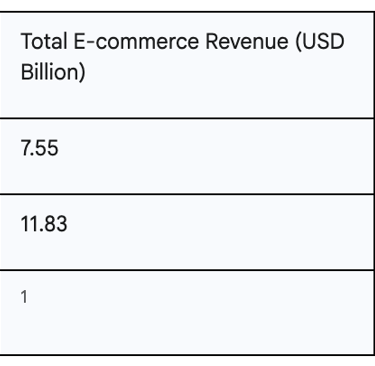




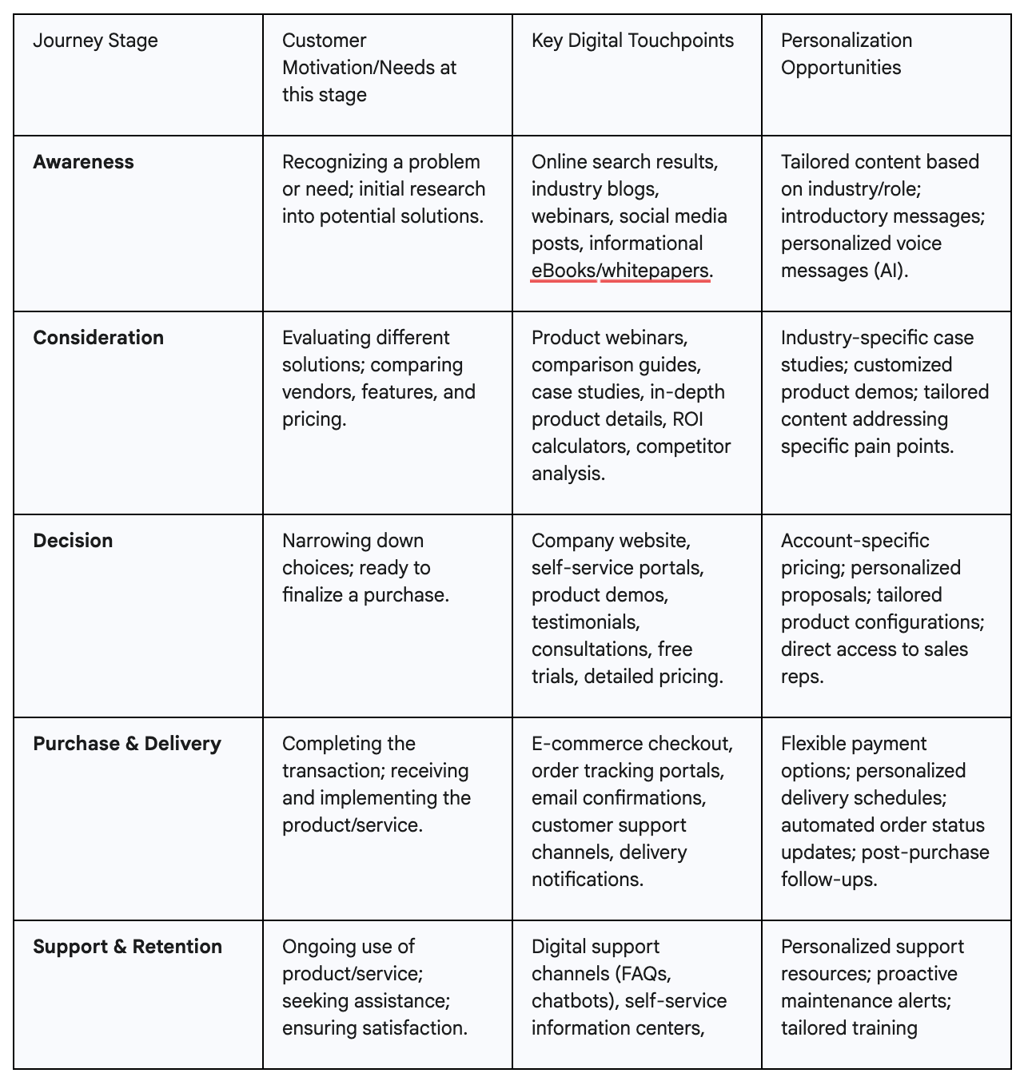


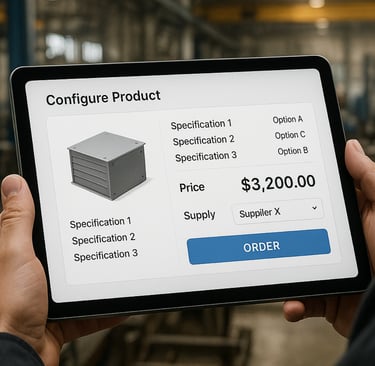

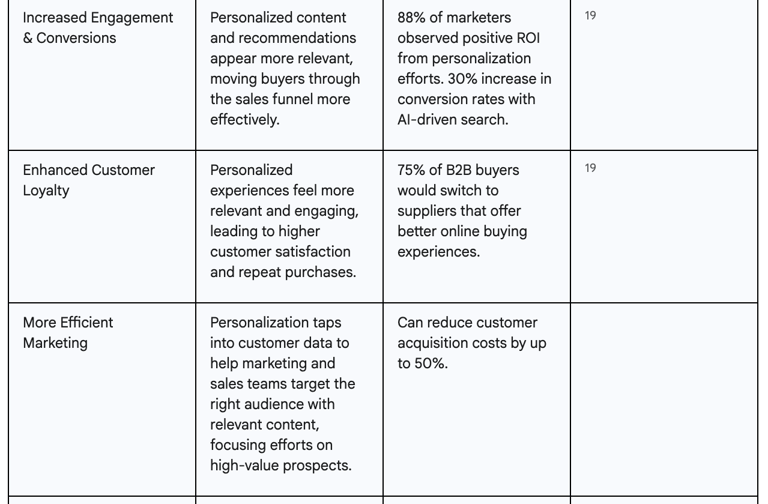

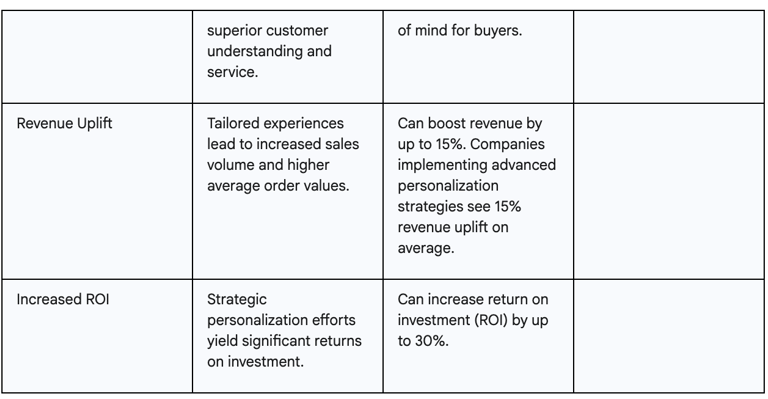


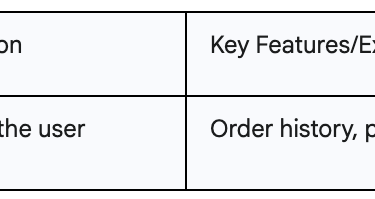
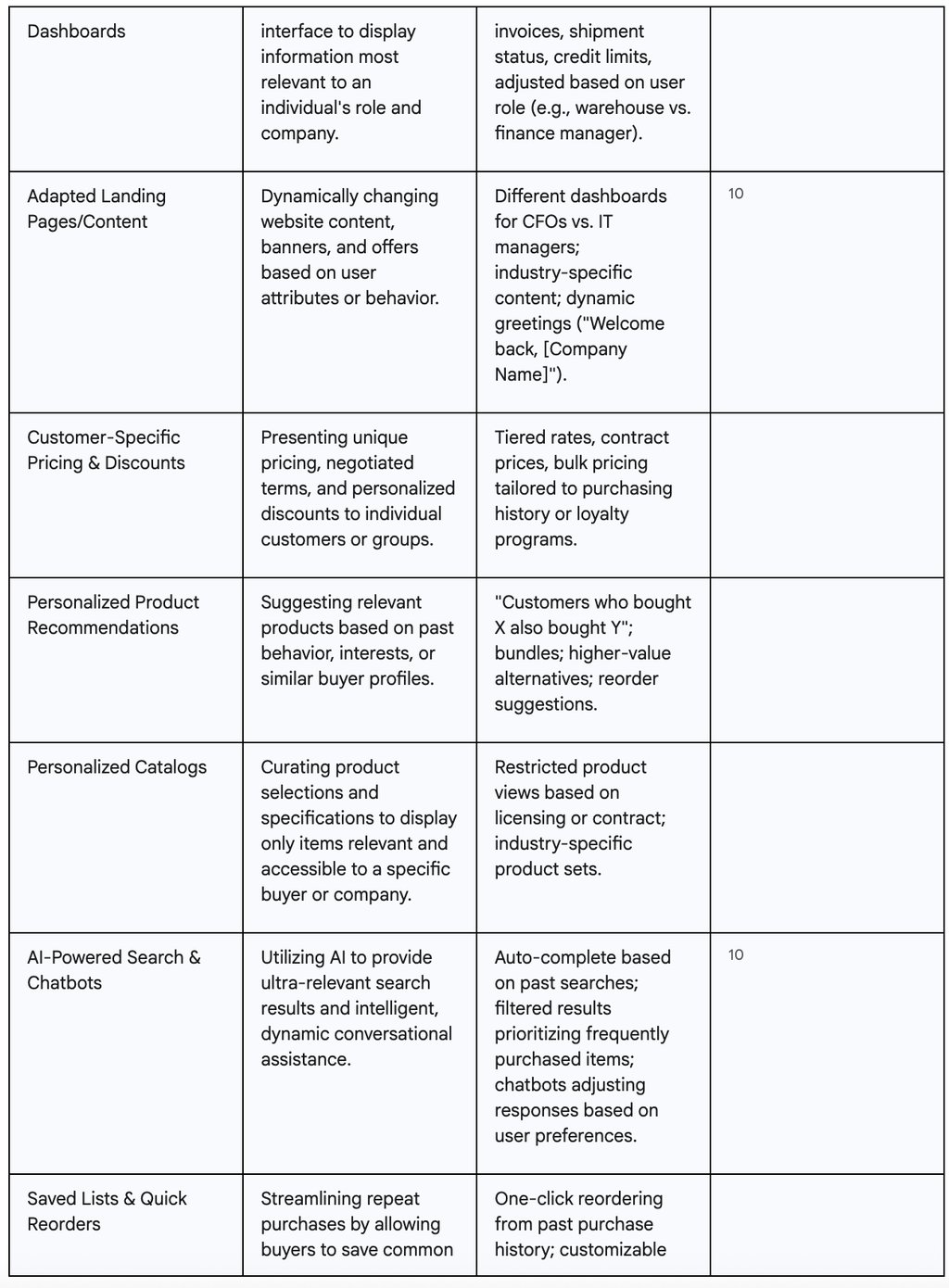


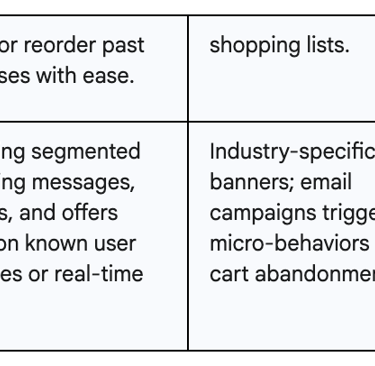
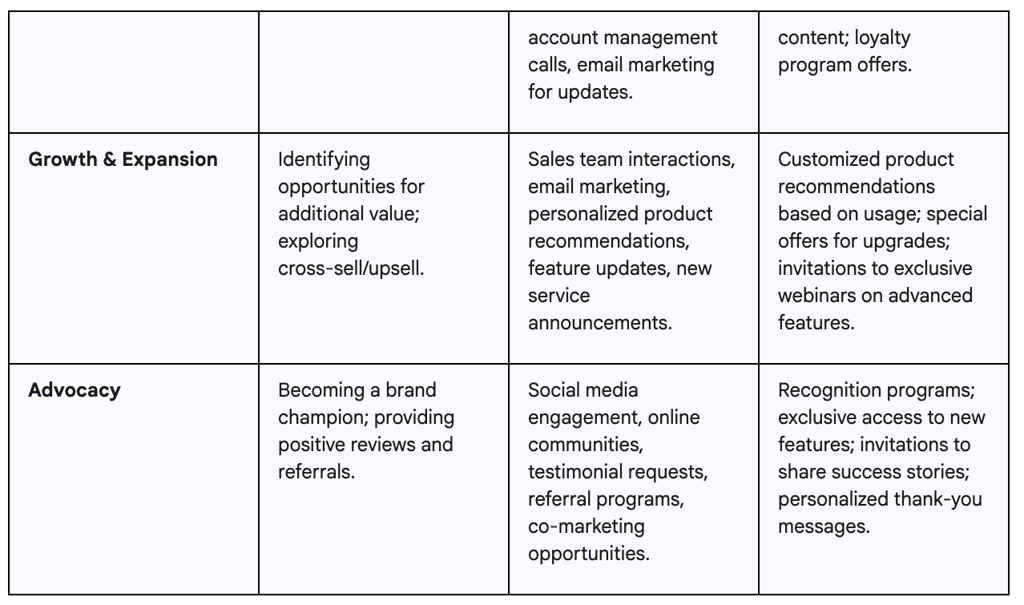

Address
4/12 Gershon Sharshevski,
Mazkeret Batya, Israel


